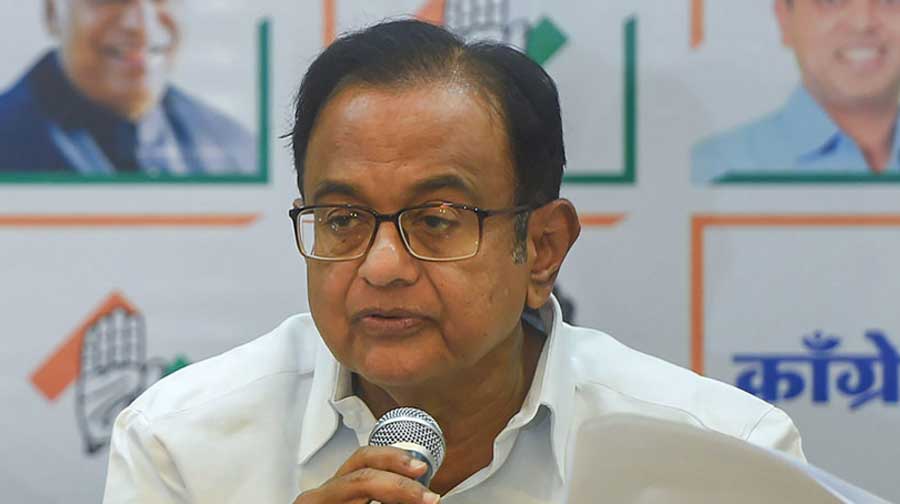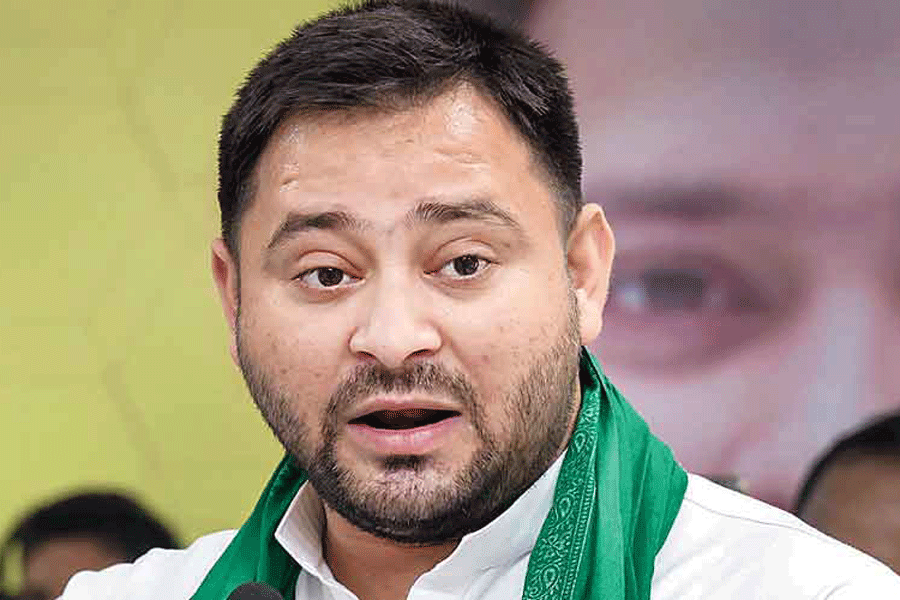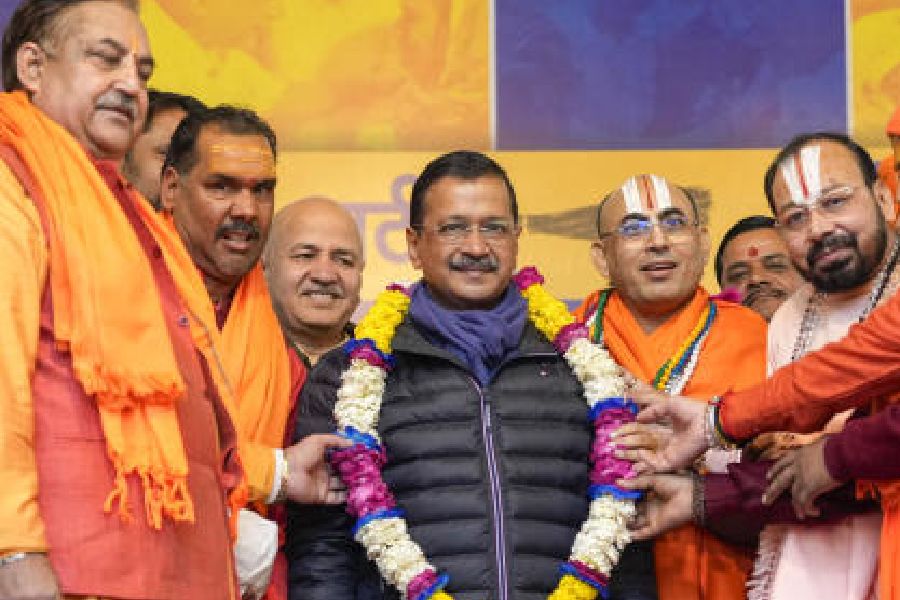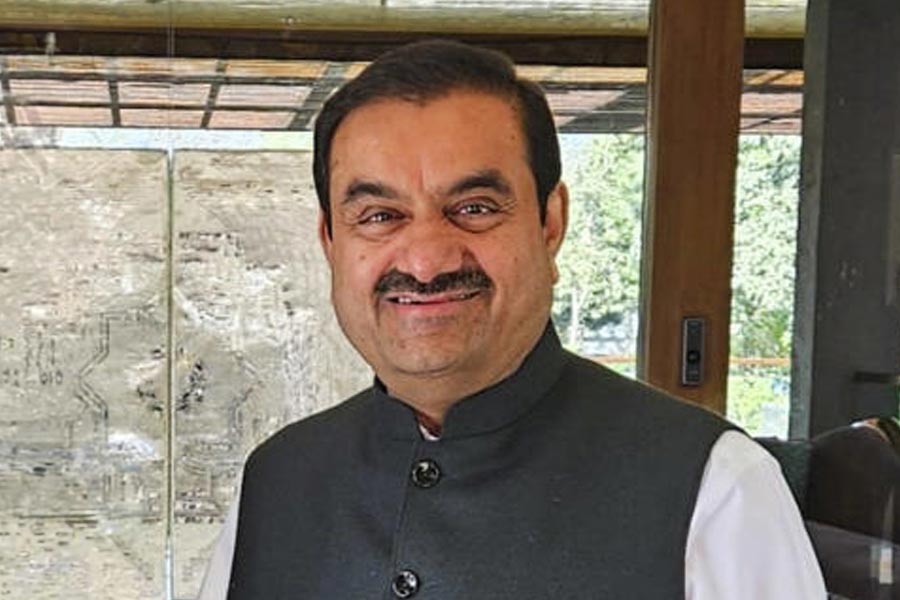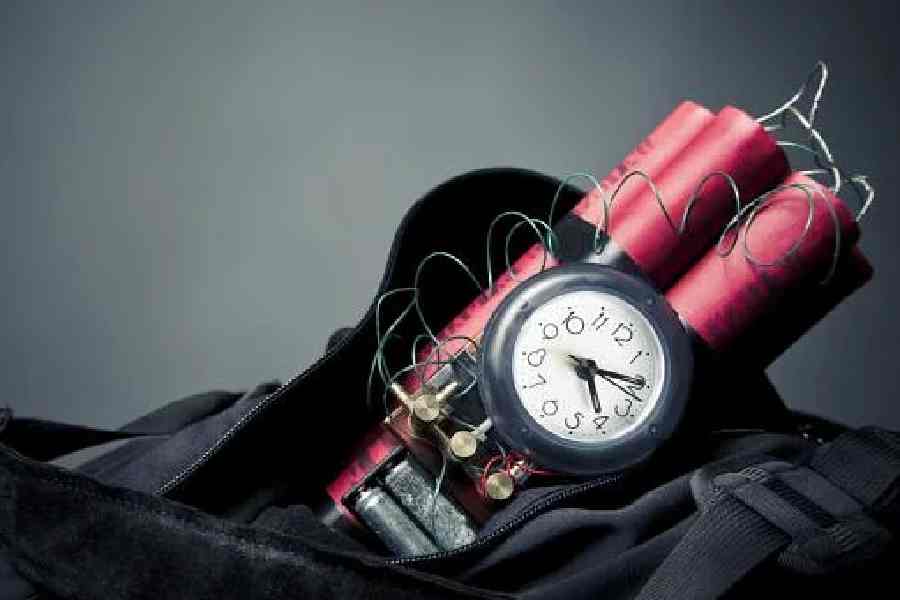The Congress on Thursday saw vice-president Jagdeep Dhankhar’s critique of the “basic structure” doctrine as dangerous and part of a planned confrontation with the judiciary, while asserting that the landmark judgment was a safeguard against a possible majoritarian assault on the Constitution.
Congress veteran and top lawyer P. Chidambaram argued through a series of tweets: “The honourable Chairman of the Rajya Sabha is wrong when he says that Parliament is supreme. It is the Constitution that is supreme. The ‘Basic Structure’ doctrine was evolved in order to prevent a majoritarian-driven assault on the foundational principles of the Constitution.”
Chidambaram added: “Suppose Parliament, by a majority, voted to convert the parliamentary system into a presidential system. Or repeal the State List in Schedule VII and take away the exclusive legislative powers of the states. Would such amendments be valid? After the NJAC (National Judicial Appointments Commission) Act was struck down, nothing prevented the government from introducing a new bill.”
The former Union minister sounded a warning: “The striking down of one Act does not mean that the ‘Basic Structure’ doctrine is wrong. In fact, the honourable Chairman’s views should warn every Constitution-loving citizen to be alert to the dangers ahead.”
Addressing a conference of presiding officers of legislatures in Jaipur on Wednesday, Dhankhar had argued that the basic structure judgment undermined parliamentary sovereignty.
He said: “In democratic society, ‘the basic’ of any ‘basic structure’ has to be the supremacy of the mandate of the people. Thus the primacy and sovereignty of Parliament and legislature are inviolable. Power of Parliament to amend the Constitution and deal with legislation is not subject to any other authority. This is the lifeline of democracy.”
Dhankhar explained: “It was in 1973, in the Kesavananda Bharati case, the Supreme Court evolved for the first time the right of the courts to strike down constitutional amendments that violated what it called the ‘basic structure’, or the fundamental architecture of the Constitution. In subsequent years, the highest court delivered significant rulings on matters that it held pivotal to this ‘basic structure’ and in the process parliamentary sovereignty was compromised.”
He added: “The most recent and prominent judicial manifestation of the ‘basic structure doctrine’ was on October 16, 2015, when the highest court of the land in a 4-1 majority verdict held both the 99th Constitution Amendment Act, 2014, and the NJAC Act, 2014, unconstitutional on the premise of being in violation of the basic structure.
“The executive is ordained to be in compliance of the constitutional prescription emanating from Parliament. It was obligated to adhere to the NJAC. Judicial verdict cannot run it down. Parliamentary sovereignty and autonomy cannot be permitted to be qualified or compromised as it is the primacy and sovereignty of Parliament and legislature is inviolable.”
Congress communications chief Jairam Ramesh tweeted: “In my 18 years as an MP, I have never heard anyone criticise the 1973 Kesavananda Bharati judgment of the Supreme Court. In fact, legal luminaries of the BJP like Arun Jaitley hailed it as a milestone. Now, the Chairman of the Rajya Sabha says it was wrong. Extraordinary attack on the judiciary!”
Ramesh added: “It also bears mention that a no holds barred assault on one constitutional institution by another is quite unprecedented. Having different views is one thing, but the Vice-President has taken the confrontation with the Supreme Court to an altogether different level!”
Dhankhar, who had articulated his position in the Rajya Sabha as well, asserted at the conference on Wednesday: “No institution can wield power or authority to neutralise the mandate of the people. It is the obligation of Parliament and legislatures to protect the sovereignty of the people. It must be remembered that the Constitution never envisaged a third and superior chamber for Parliament to grant approval to the legislations passed by the two Houses.”
The Vice-President, who insisted that high constitutional offices should be kept away from political influence, reflected the views of the Prime Minister on India’s rising stature in the world and used the expression “Amrit Kaal” twice in his speech.

